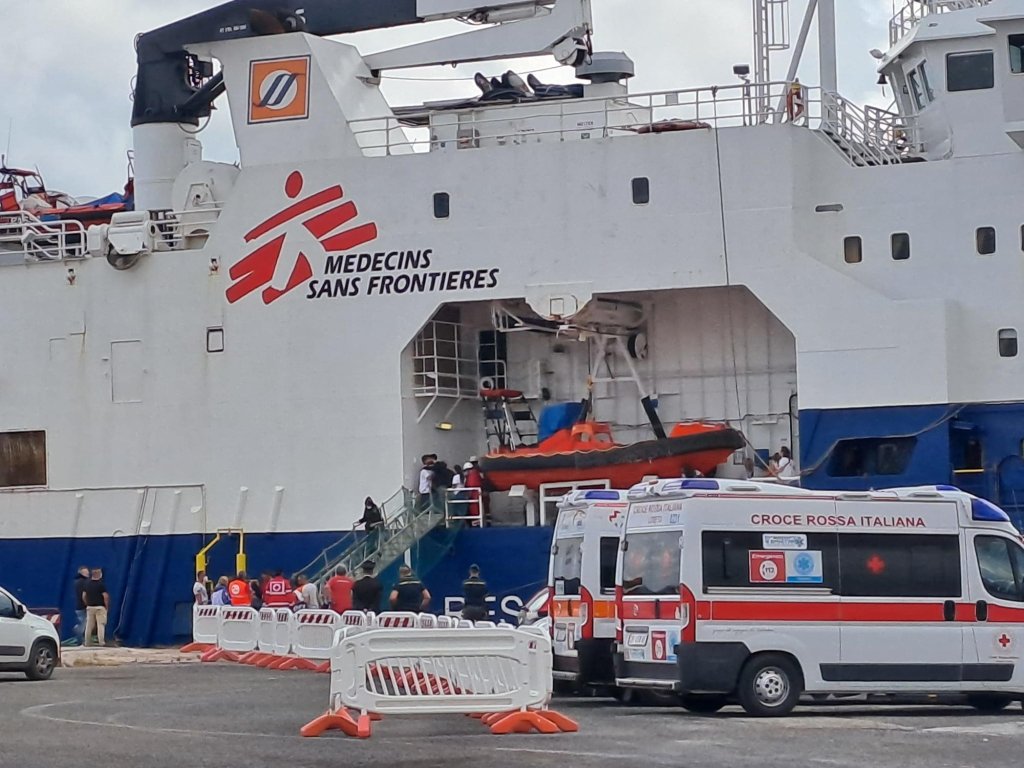On November 30, two humanitarian rescue ships, the Geo Barents and Life Support, brought migrants to safety in Calabria, Italy, after dramatic rescue missions. The Geo Barents, operated by Doctors Without Borders (MSF), arrived in Reggio Calabria with 83 people on board. Meanwhile, the Life Support, run by the NGO Emergency, docked in Vibo Valentia with 75 rescued migrants.
The Geo Barents initially faced a harrowing situation in international waters. Migrants aboard a sinking dinghy were intercepted by Libyan militias, who reportedly threatened them with weapons, fired into the air, and forced approximately 70 individuals into the sea. The MSF team rescued all those thrown into the water, but the Libyan coast guard took 29 women and children back to Libya. Survivors said those taken back were subjected to violence and abuse, with some describing losing their wives and children in the process.
Among the migrants on the Geo Barents, many were in shock, and some expressed desperation to reunite with their families. A man reportedly attempted to jump into the sea to save his wife and two children, aged four months and ten years, who had been taken by the Libyan authorities. Mara Eliana Tunno, an MSF psychologist, described the trauma experienced by those rescued.
The Life Support ship also carried out critical rescues in international waters, within the Maltese Search and Rescue area, on November 28. It saved 38 people in one operation and 37 in another. The migrants, who departed from Libya, included eight women, four accompanied minors, and 12 unaccompanied minors. They came from various countries, including Bangladesh, Egypt, Eritrea, Palestine, Pakistan, Syria, and Sudan—nations impacted by war, political instability, poverty, and climate challenges.
This marked the first time authorities assigned the port of Vibo Valentia to the Emergency vessel. At the port, local priest Vincenzo Varone, police officials, and rescue workers welcomed the migrants, offering support and emphasizing the importance of compassion and solidarity.
These arrivals highlight the ongoing challenges faced by migrants fleeing dire circumstances and the vital role humanitarian organizations play in saving lives.

